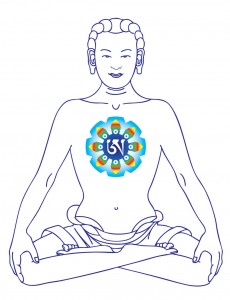 Yantra Yoga or the Yoga of Movement, is one of the oldest recorded systems of Yoga that exists in the world. It is a system of Yoga that has come to us through Tibet, a land full of a vast and rich traditional Buddhist knowledge and wisdom.
Yantra Yoga or the Yoga of Movement, is one of the oldest recorded systems of Yoga that exists in the world. It is a system of Yoga that has come to us through Tibet, a land full of a vast and rich traditional Buddhist knowledge and wisdom.
The uninterrupted lineage of Yantra Yoga is a fundamental method to integrate the profound essence of the Dzogchen Teaching in the three doors (body, voice and mind) of the practitioner. Through positions and movements combined with breathing, one’s energy is coordinated and harmonized so as to let the mind relax and find its authentic balance, which is the basis for contemplation.
Yantra Yoga is an indispensable Teaching for coordinating our three dimensions of existence, Body, Energy, and Mind
In Yantra Yoga there are many positions similar to Hatha Yoga, but the way to assume them differs. In Yantra Yoga a sequence of seven phases of movements connected to seven breathings is used. In particular, in the central phase of the movement the position helps create specific retentions of the breath that work at a subtler and deeper level. For this reason it is not only the main position but the entire movement that is important.
If we are able to harmonize the condition of the prana, or vital energy, we are able to control the condition of our energy and our mind can become really relaxed. This relaxation is more than “letting go” when we are tense. It is the condition of our energy when it is really free from obstacles and flows without restraint. The movements or Yantras coordinate and harmonize all these functions of prana.
Yantra Yoga is a complete spiritual path and an invaluable benefit to daily life. It can be an entry point to the great Dzogchen teachings, a secondary practice aimed at the coordination of our vital energy, and through the transmission of a qualified Dzogchen Master, a method for complete realization. To practice this profound Yoga of Movement, it is indispensable to receive oral instruction from one of the authorized instructors of the Dzogchen Community founded by Chögyal Namkhai Norbu.


